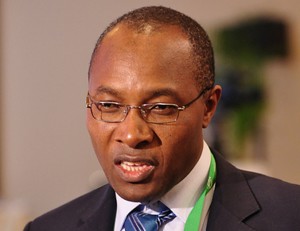If Africa continues business as usual, economic growth won’t impact poverty – Karingi

African countries have been told that if they continue to do business as usual, their economic growth won’t impact widespread poverty on the continent.
Dr. Stephen Karingi, Director of the United Nations Economic Commission for Africa (UNECA’S) Regional Integration and Trade Division told trade experts meeting in Addis Ababa, Ethiopia, Monday December 1, 2014. According to a press release from UNECA, the experts are meeting for three days to discuss the implications of mega regional trade agreements and current investment trends in the context of Africa’s commitment to forge its economic integration.
“It is clear that if business as usual persists, Africa is likely to continue seeing growth that will not impact on widespread poverty levels and economic structures will likely remain the same, and Africa’s transformation will be still born, and the risk of being caught up in the middle income trap will become real,” he said.
Dr. Karingi was speaking on behalf of Dr. Carlos Lopes, UN Under-Secretary and Executive Secretary of the UNECA.
The meeting is in advance of the 9th Ordinary Session of the African Union Conference of Ministers of Trade to be held on 4-5 December and would lead to the launch of the Continental Free Trade Area (CFTA) negotiations which begin in 2015.
According to Dr. Karingi the robust economic growth experienced by Africa over the last decade and driven by high commodity prices had little impact on poverty eradication and had not altered economic structures.
He was however hopeful that the discussions will be informed by the big picture of sustainability and structural transformation of African economies.
In her opening statement, the African Union Commission Director for Trade and Industry, Treasure Maphanga, reminded the experts that as Africa meets to discuss the advancement of its regional integration agenda, the world is moving.
She cited global negotiations underway such as the Trans-Atlantic Trade and Investment Partnership (TTIP) agreement that is being negotiated between the European Union and the United States; the Trans-Pacific Partnership negotiations between the US and Pacific Countries; as well as the Free Trade Area under negotiation between China, Japan, and South Korea.
She stressed that the CFTA is an important opportunity to develop and harmonize regulations in a number of trade-related services sectors that will backstop the industrialization process.
“As you consider the draft texts for the CFTA negotiations, we wish to remind all of us that the continent is looking for greater ambition than the Tripartite Negotiations. We are seeking to develop an agreement that enables deep integration amongst all African economies, with a focus on Boosting Intra-African Trade and implementing the Action Plan that includes Trade-related Infrastructure, Productive capacity and Trade facilitation”, she said.
The Establishment of the Continental Free Trade Area (CFTA) was decided in the 18th Ordinary Session of the Assembly of Heads of State and Government of the African Union which was held in Addis Ababa, Ethiopia in January 2012, which will bring together 54 African countries with a combined population of more than one billion people and a combined gross domestic product of more than US$1.2 trillion dollars.
By Emmanuel K. Dogbevi
